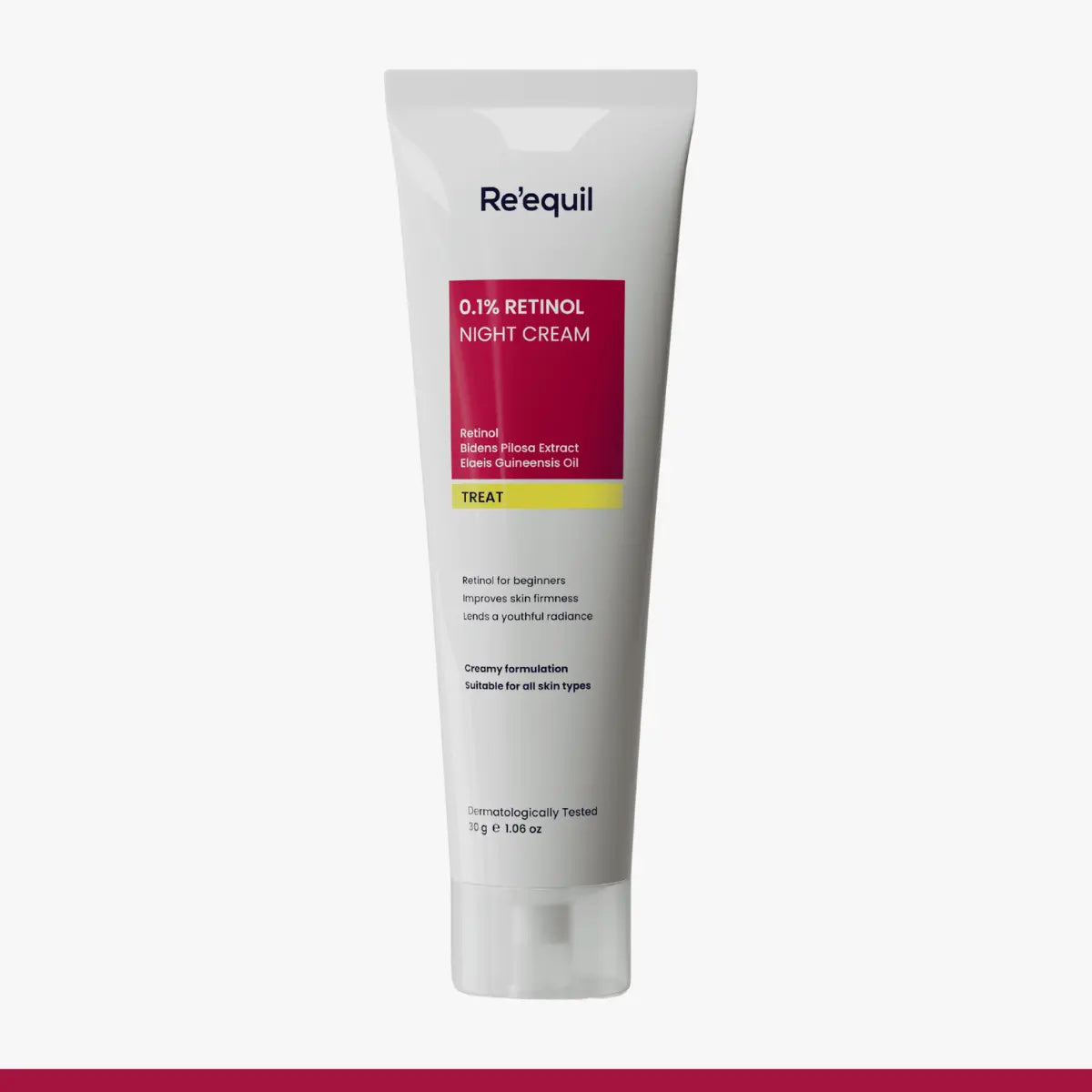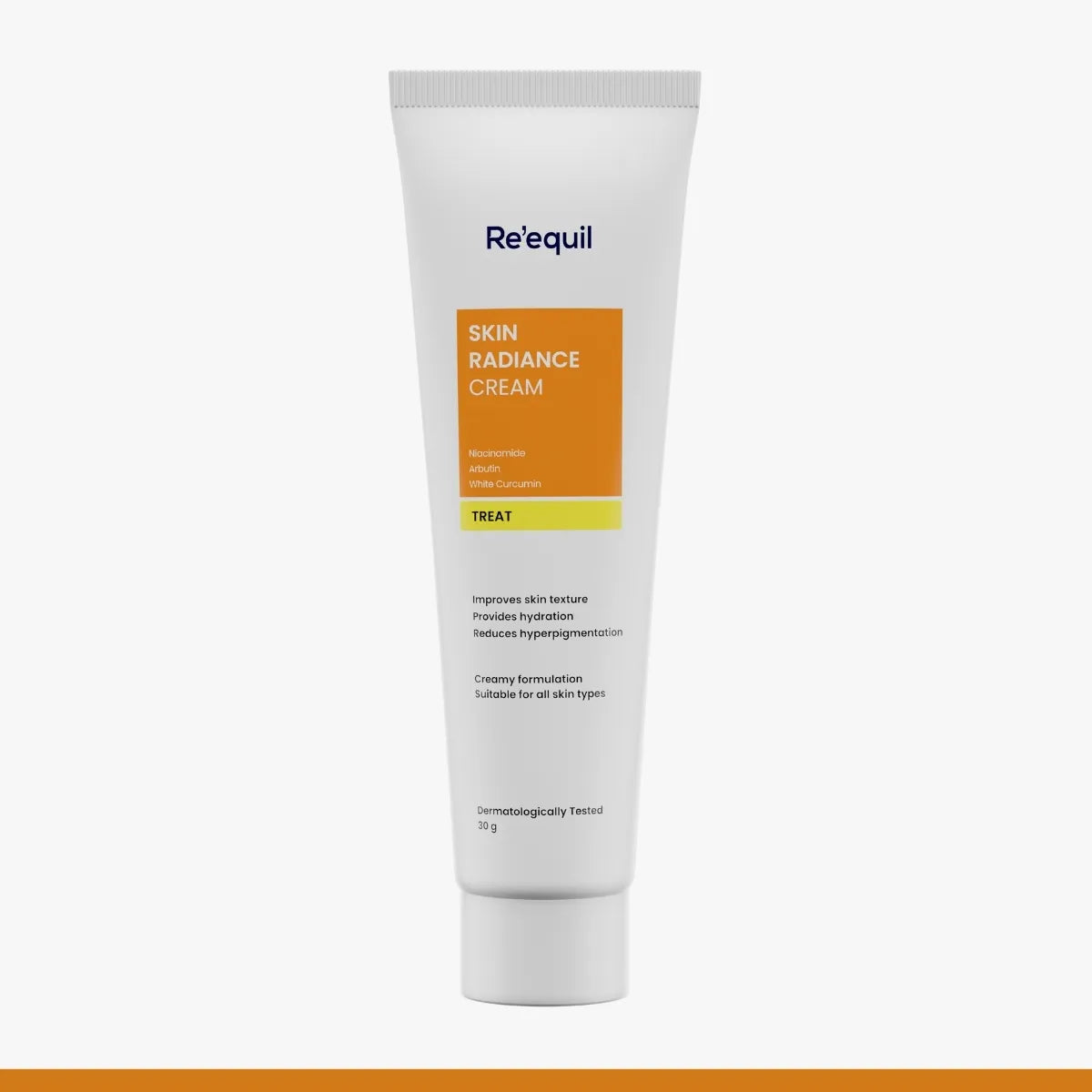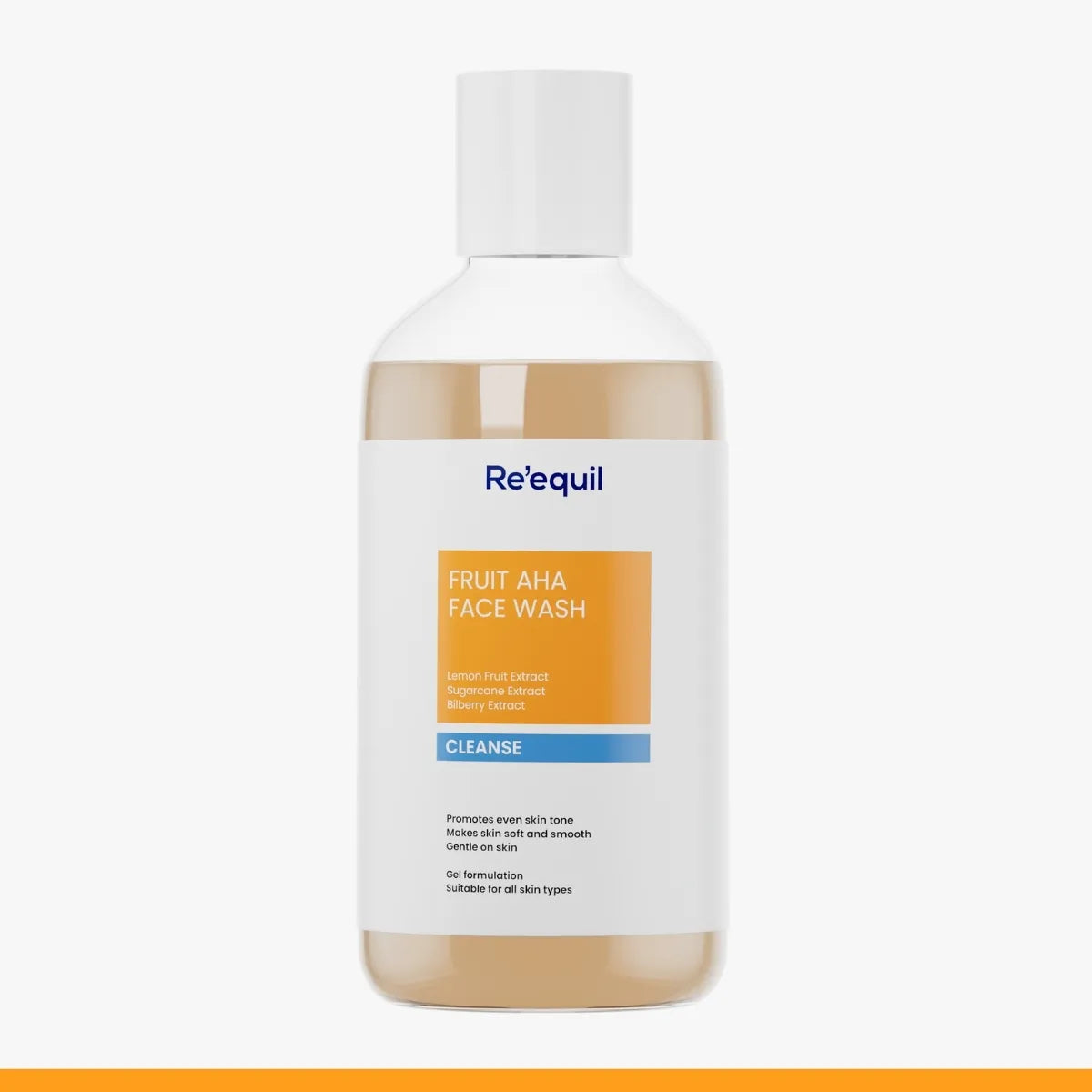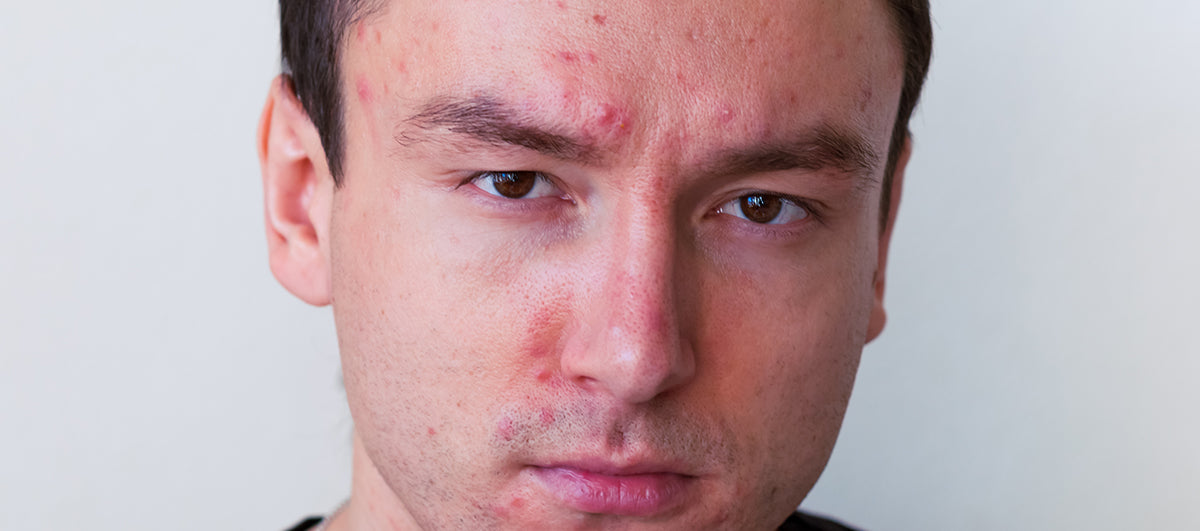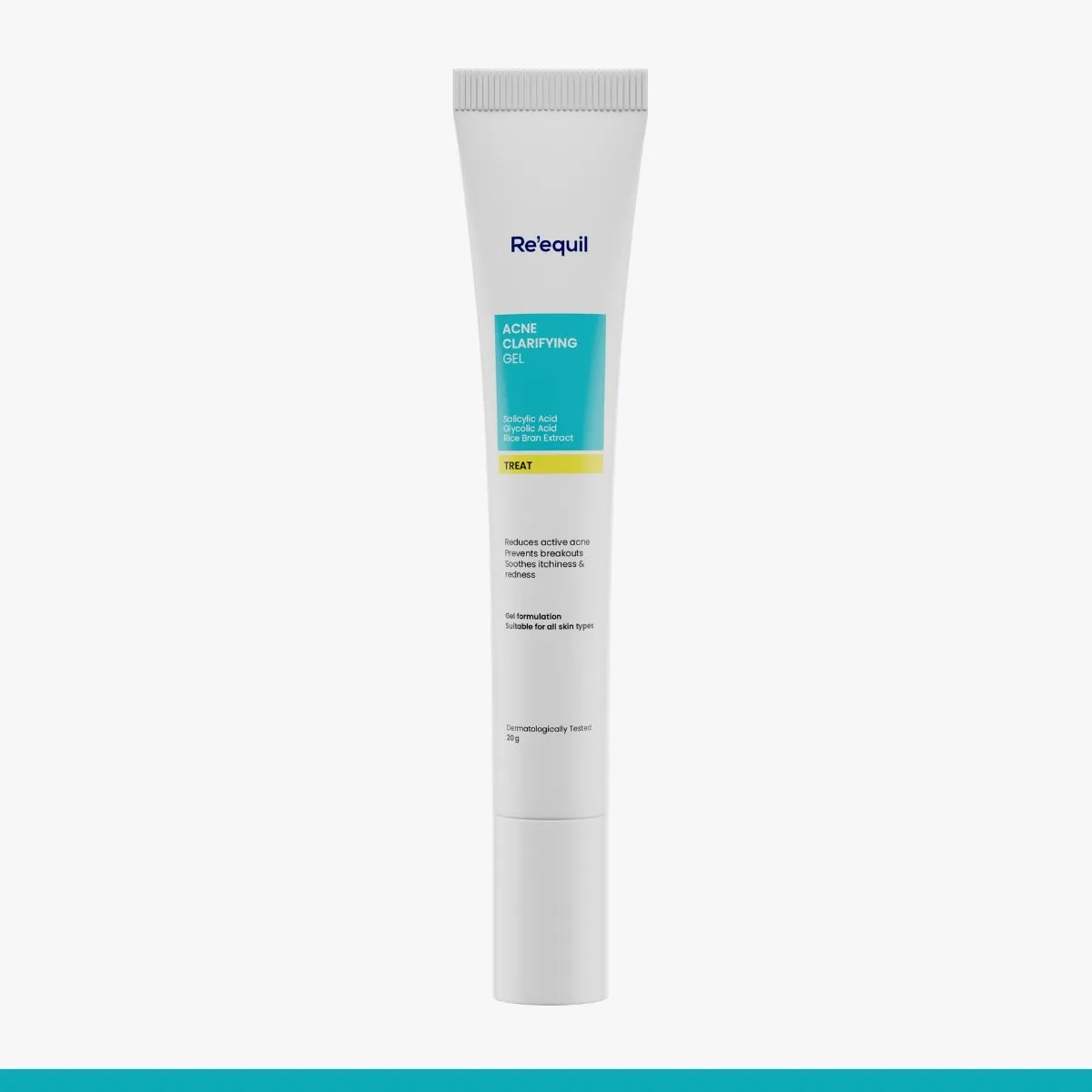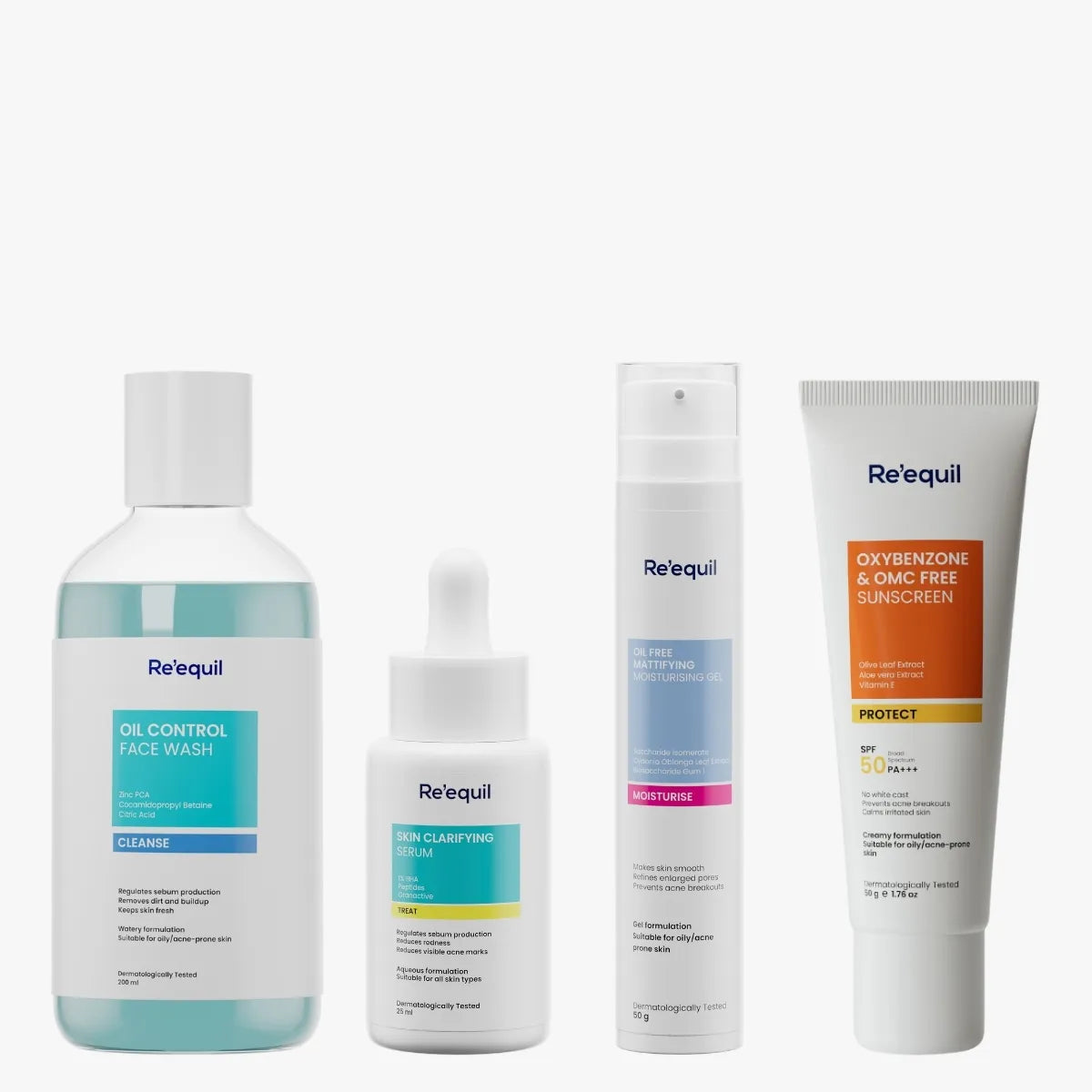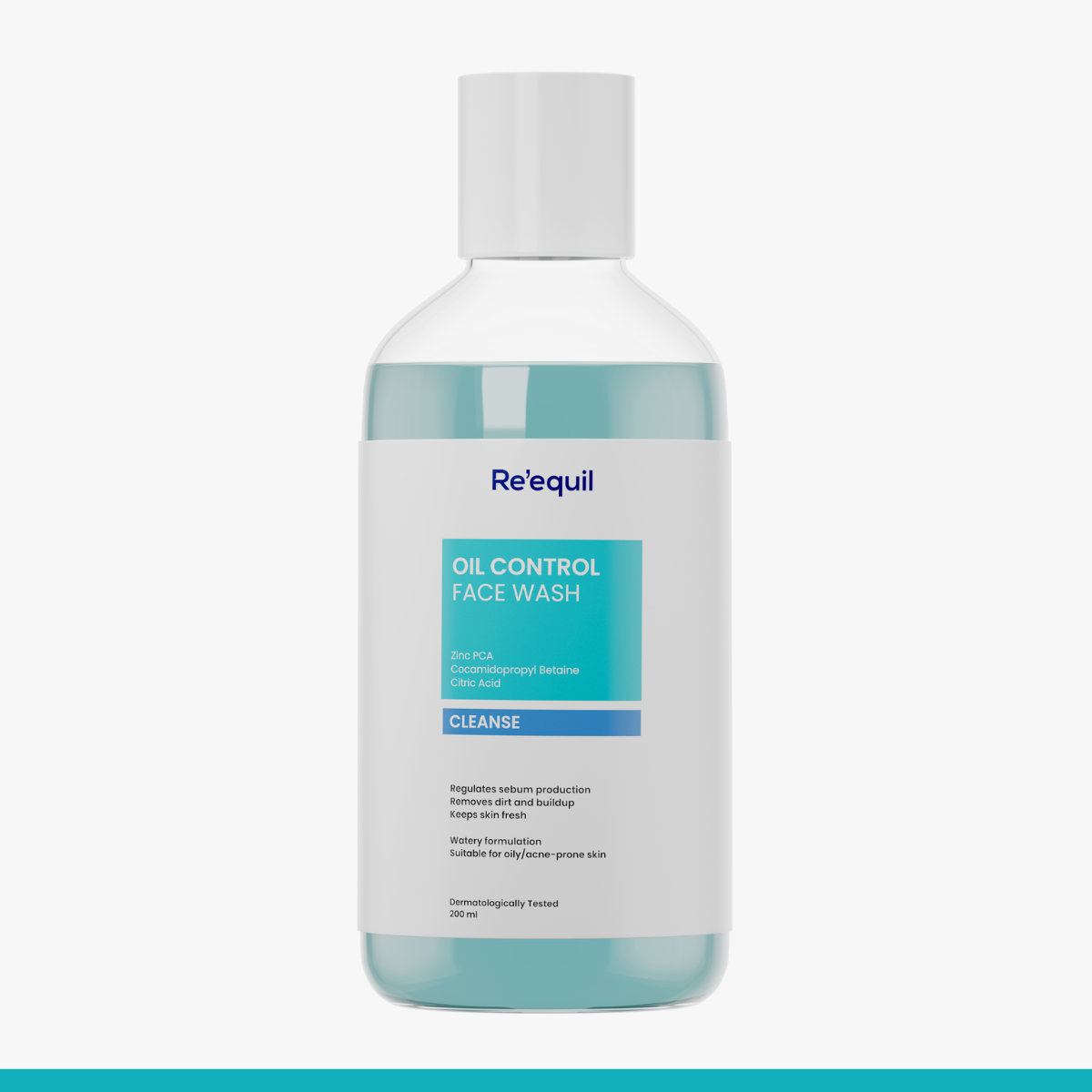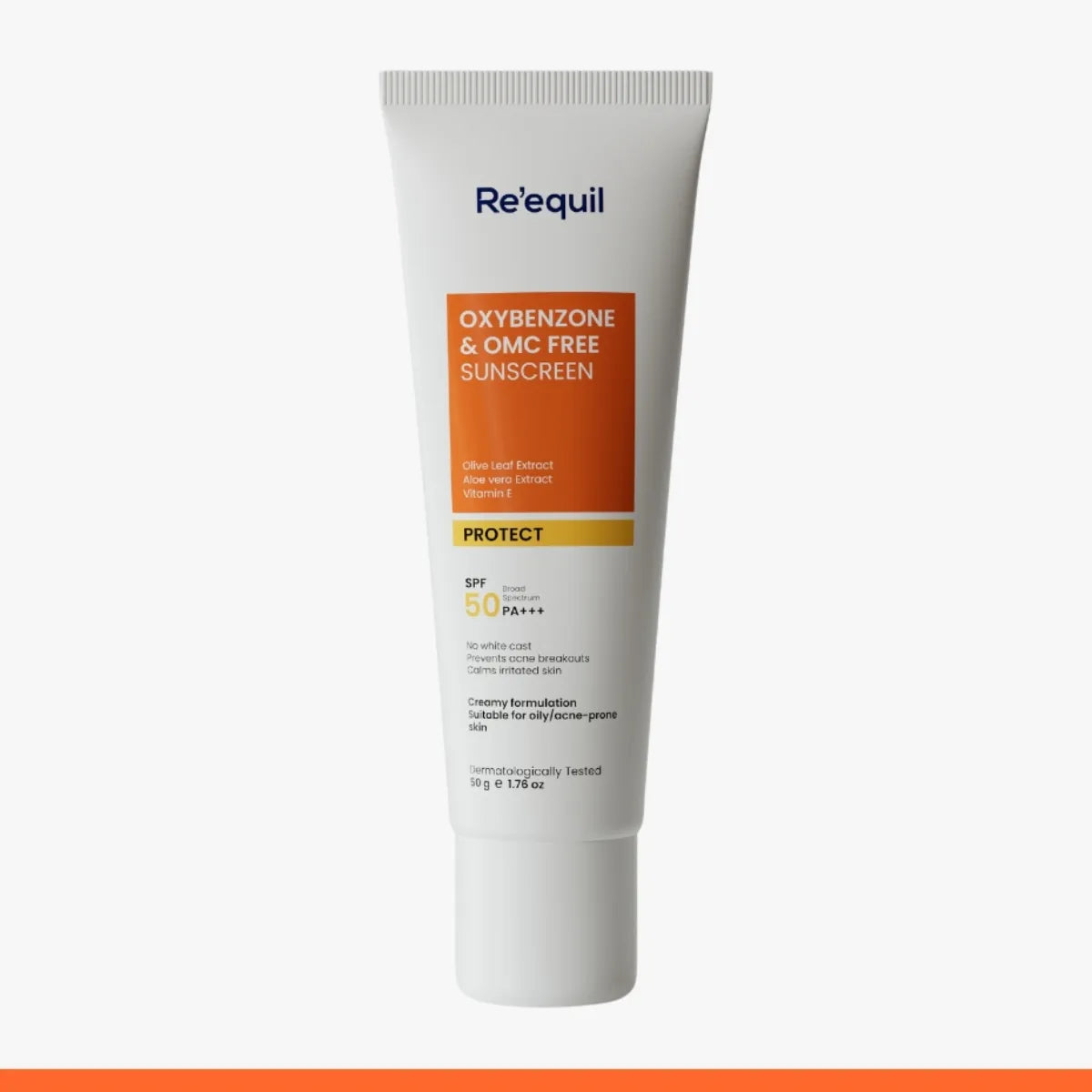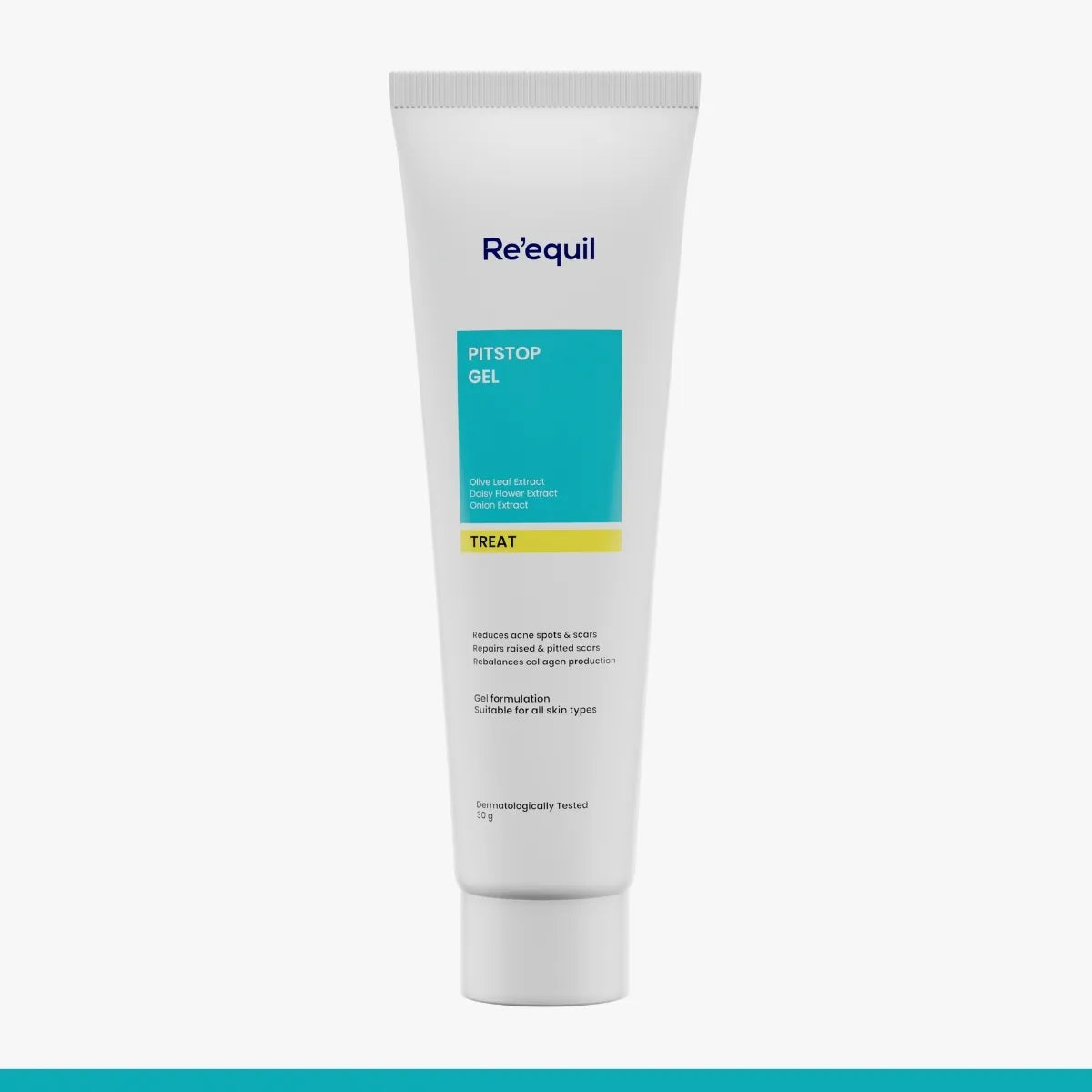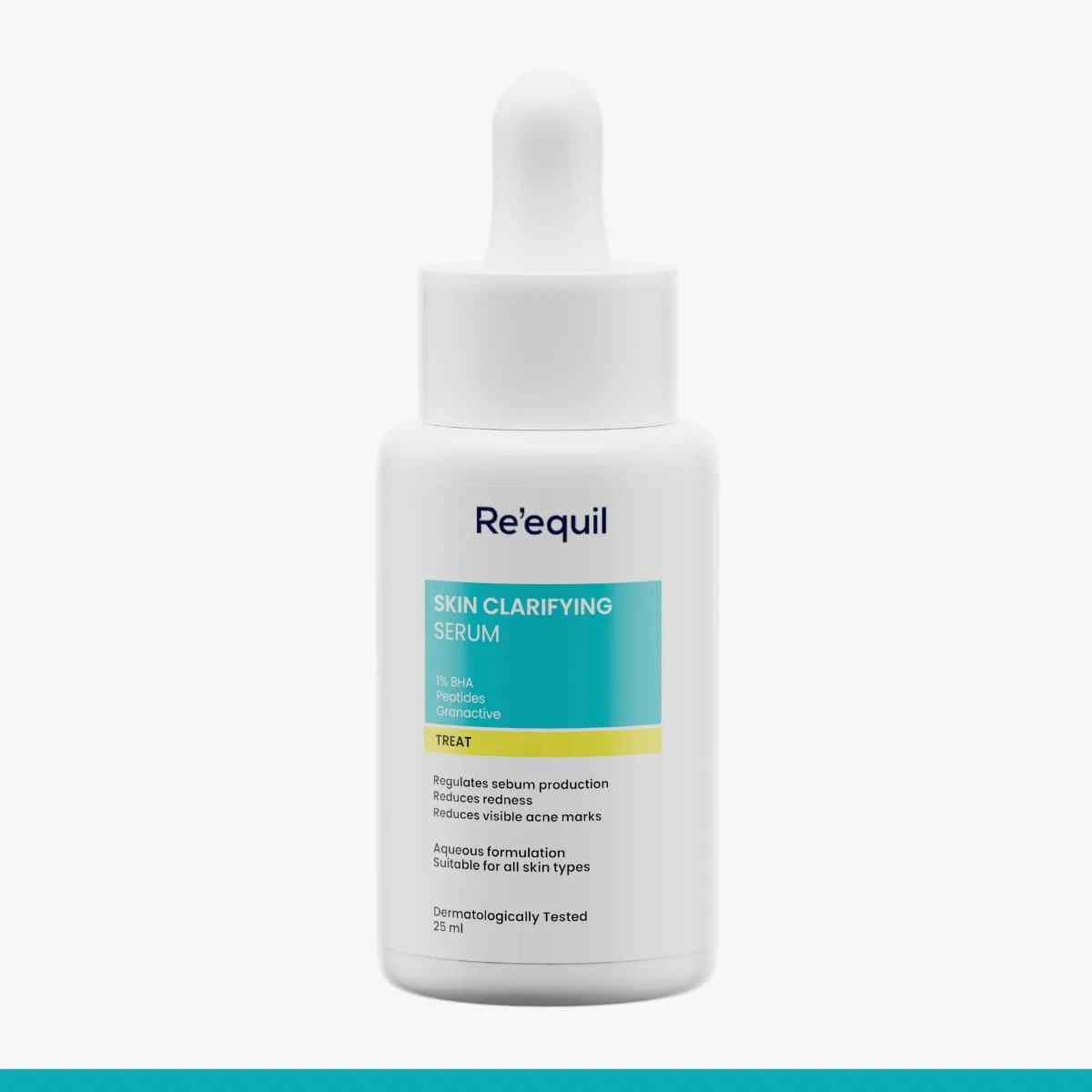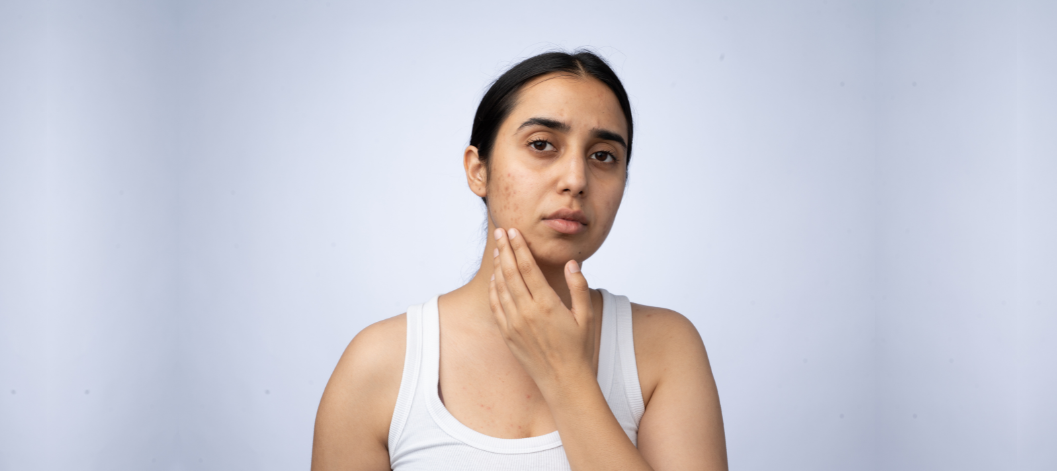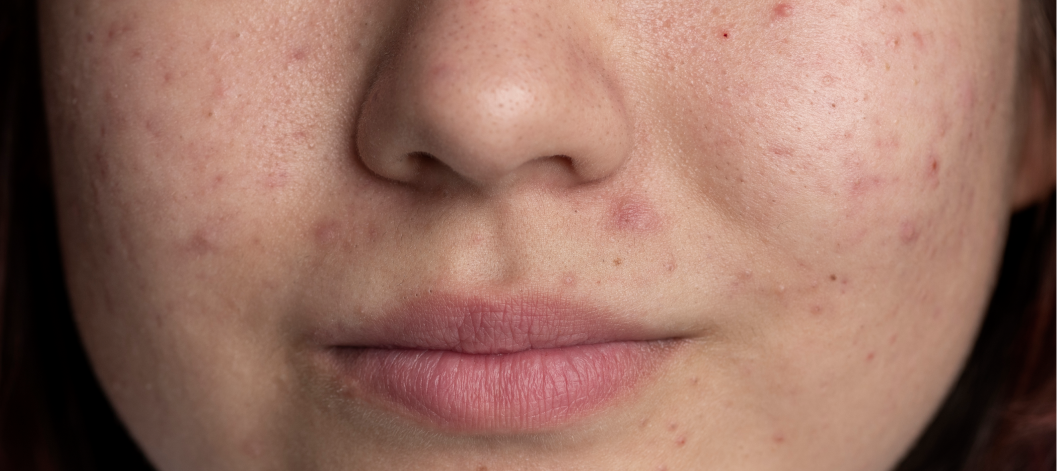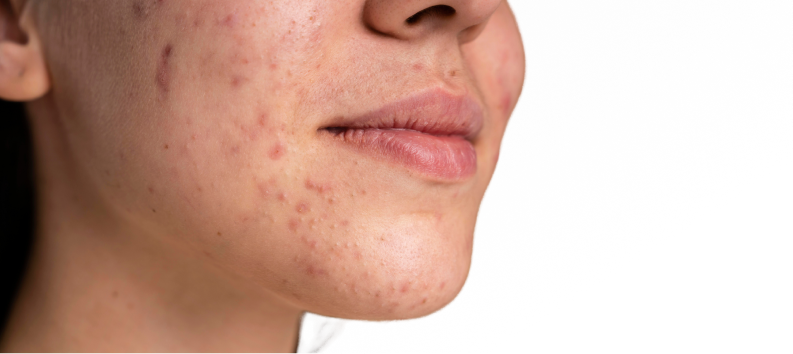Acne-prone skin faces more than just breakouts.
It's often inflamed and susceptible to whiteheads, blackheads, pustules, and painful nodules, affecting the skin’s appearance.
Zinc PCA, a powerful ingredient in many cleansers, toners, serums, and moisturisers, helps tackle oily and acne-prone skin effectively.
It’s one of the few ingredients that is both gentle on sensitive skin and highly effective against skin conditions like acne and rosacea.
Derived from zinc and pyrrolidone carboxylic acid, Zinc PCA is scientifically proven and frequently used in face washes and anti-dandruff treatments.
It’s a valuable addition to any oily skincare routine.
How does Zinc PCA help manage acne-prone skin?
As per scientific research and advancements, Zinc PCA has sebum-regulating, anti-inflammatory, antibacterial, wound healing, and antioxidant properties that make it a versatile ingredient for managing acne and promoting overall skin health.
Here are the top six positive benefits of Zinc PCA that effectively contribute to the management of acne:
Regulates sebum production
One of the key factors in acne development is excess sebum (oil) production.
Zinc PCA helps regulate sebum production by controlling the activity of sebaceous glands.
This helps prevent pores from getting clogged with excess oil, reducing the formation of blackheads and whiteheads (comedones).
Anti-Inflammatory properties
Acne is often accompanied by inflammation, causing redness, swelling and discomfort.
Zinc PCA has anti-inflammatory properties that help calm and soothe the skin.
By reducing inflammation, it helps alleviate the symptoms of acne and can prevent the formation of more severe lesions.
Antibacterial Properties
The growth of Propionibacterium acne (P. acne), a bacterium commonly associated with acne, can contribute to the development of pimples and inflammation.
Zinc PCA has natural antibacterial properties that can help inhibit the growth of P. acne, leading to a reduction in acne lesions.
Wound healing and scar prevention
Acne lesions can leave behind scars, especially if they are picked or popped.
Zinc PCA aids in the skin's natural healing process, promoting faster recovery from existing lesions and reducing the likelihood of post-inflammatory hyperpigmentation and scarring.
Antioxidant defence
Zinc PCA acts as an antioxidant, protecting the skin from damage caused by free radicals.
Free radicals can exacerbate acne and lead to skin ageing.
By neutralising these harmful molecules, Zinc PCA helps maintain healthier and clearer skin.
Strengthens skin barrier function
Zinc PCA helps support the skin's natural barrier function, which is important for maintaining overall skin health.
A well-functioning skin barrier helps prevent moisture loss and protects the skin from external irritants, which can be particularly beneficial for acne-prone skin that is more sensitive.
What can you expect after adding Zinc PCA into your skincare routine?
After adopting the above tips and incorporating skincare essentials into your routine, you can anticipate experiencing a range of positive results for your skin, such as -
Faster healing
Skincare essentials that support wound healing, like Zinc PCA, can help existing acne lesions heal more quickly.
This can lead to a reduction in post-inflammatory marks and a faster overall recovery.
Less sensitivity
Some acne treatments can cause skin sensitivity and dryness.
Zinc PCA is generally considered to be gentle on the skin, so you might experience fewer side effects like redness or peeling.
Youthful radiance
Antioxidant-rich products and sun protection can help ward off premature ageing caused by environmental factors.
This contributes to a youthful and vibrant complexion over time.
Reduced inflammation
The anti-inflammatory properties of Zinc PCA can help calm redness and irritation associated with acne.
You may notice that active breakouts appear less inflamed and that your skin looks and feels calmer.
Wrapping up
Zinc PCA is a valuable ingredient in treating acne-prone skin due to its multifaceted properties.
Its importance lies in its ability to address several factors that contribute to acne development and its potential to promote clearer, healthier skin.
Inherently gentle on the skin, Zinc PCA is suitable for sensitive or easily irritated skin types. Its effectiveness in addressing acne without causing excessive dryness or irritation is crucial for long-term use.
Additionally, by understanding your skin's unique needs and using products tailored to your concerns, you can harness the potential of Zinc PCA to achieve clearer and healthier skin.
